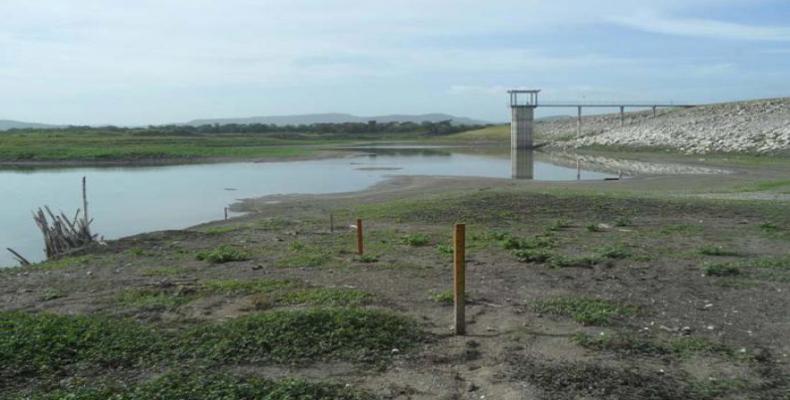Havana, June 4 (RHC)-- June 1st marked the beginning of the hurricane season for the Caribbean area, which came along the rainy season, but forecasts say that rain will continue to be scarce as water reserves shrink affecting economic sectors of the Caribbean island nations.
Predictions talk of a drier-than-normal rainy season this year with similar forecasts for 2016, which means a serious challenge to the countries in this region.
Cedric Van Meerbeeck, a climatologist who recently attended a two-day forum of the Caribbean Institute of Meteorology and Hydrology (CIMH) in St. Lucia, recalled the dry year of 2009, when conditions led to water rationing across many Caribbean islands, with low rainfall records reported in Trinidad and Tobago, Grenada, Barbados, St. Vincent and the Grenadines, St. Lucia and Guyana.
Saving water, using it in the most rational manner and disseminating information about the negative impact of drought as well as measures of response is a key program of action to counter the natural situation, which is what the Caribbean island nation of Cuba is working on.
On Wednesday, the Cuban newspaper Granma reported that the head of the Civil Defense Authority, Division General Ramon Pardo, alerted that the water situation in Cuba is serious and may pose a risk to human health if the necessary quality of water is not guaranteed.
Many Cuban communities have been supplied drinking water through
cistern trucks given the exhaustion of water sources that provided
water direct to homes. From November 2014 through April 2015, a total of 11 Cuban provinces have been hard hit by lack of rain, which directly affects reservoir levels.
According to Cuban meteorologist Abel Centella, who took part in the working session, said that 75 percent of the country has experienced low rainfall, and 242 reservoirs under the management of the National Water Institute were only at 36 percent of their accumulation capacity.
The Civil Defense Chief called for joint work to minimize the impact of drought and noted that despite measures in force, not everyone is fully aware of the danger posed by the natural phenomenon, which may seriously affect sectors like agriculture, the industry and services in general.
Meanwhile, at the meeting in Saint Lucia, meteorologists addressed this risk too, and they alerted that temperatures will also increase over usual indicators in the Caribbean.
For some area residents, like Saint Lucian farmer Anthony Herman, the situation is simply frightening, according to the Inter-American Press Service, IPS. The farmer, who is board secretary and project coordinator of a cooperative, said a response plan is crucial at this time, because he does not think they have created the resilience necessary to fight drought.
Although the reality is the same for the region under the natural
phenomena, each country is doing its part according to existing
capabilities. But the fact is that water -- the most important resource ever for human life –- can become scarce and only rationing is the short term answer.


